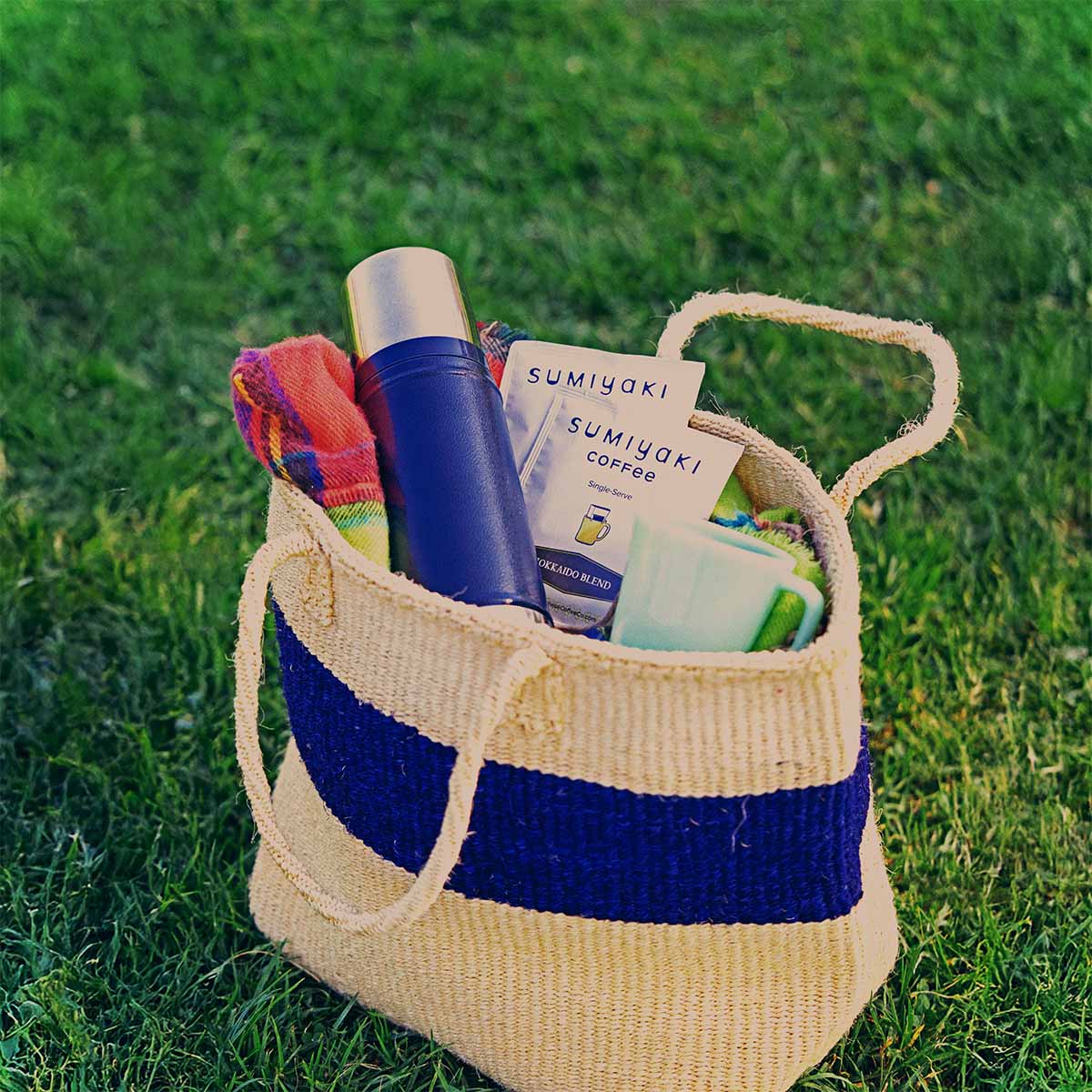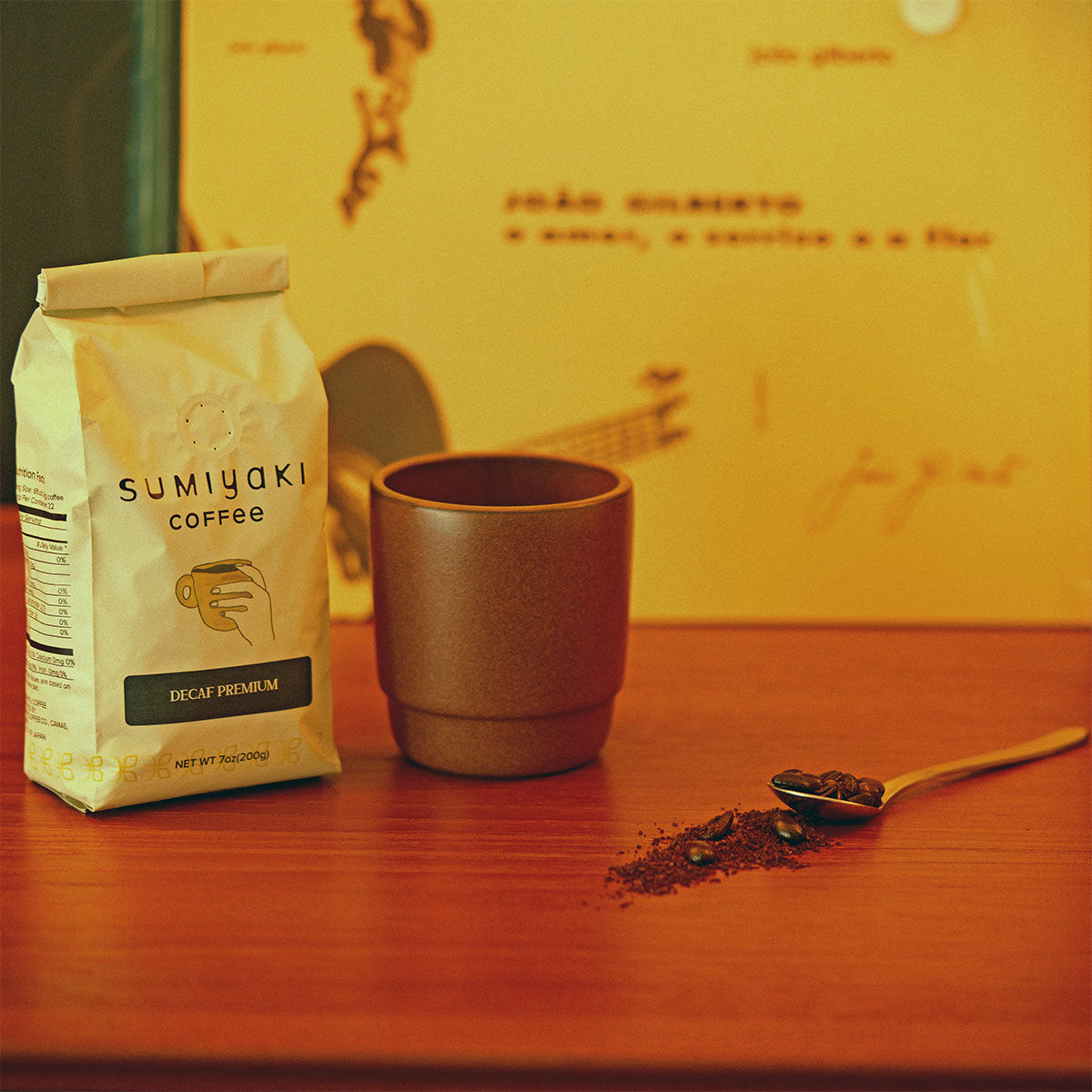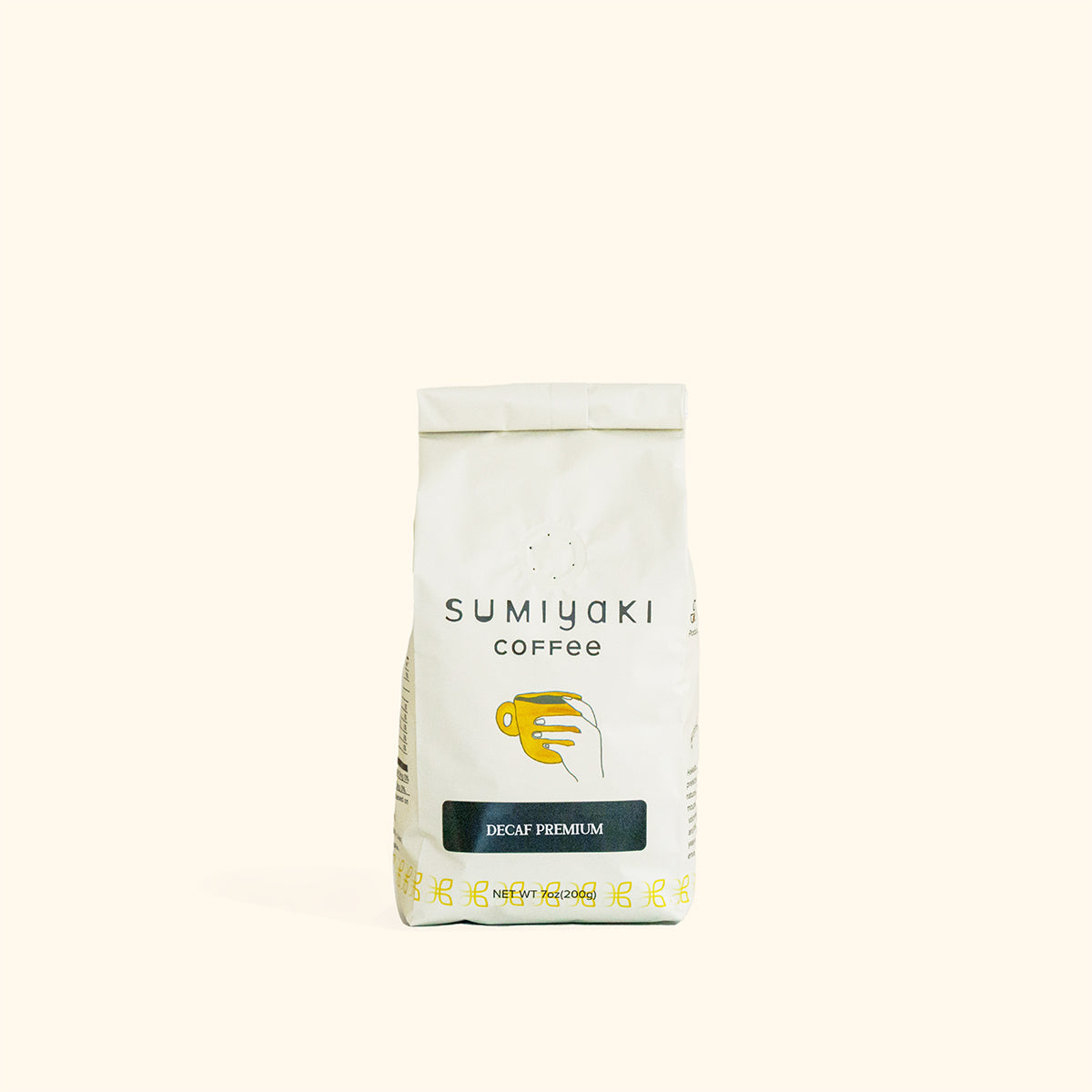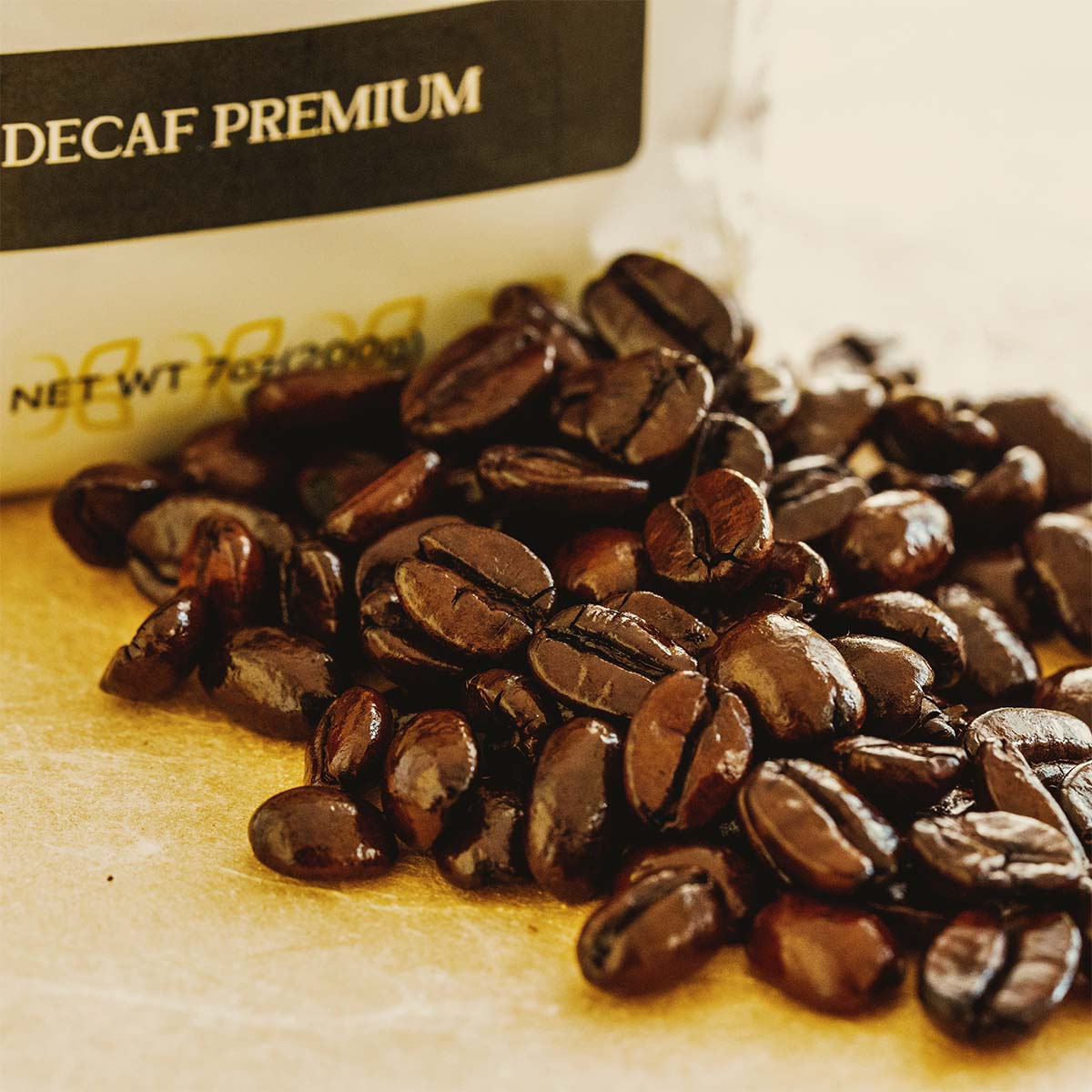How to Make Japanese Coffee Jelly – a Classic Bittersweet Delicacy that You Can Make Using Your Favorite Coffee
One of the things many people dearly miss about Japan when living abroad is Japanese Coffee Jelly. Japanese coffee jelly isn’t just a trendy dessert – it has deep roots and a surprising versatility. In fact, it first appeared in Japan during the early 20th century (the Taishō period, 1912–1926) as a spin-off of European-style molded jellies. Young people of that era, enchanted by Western fashions and the new café culture, quickly embraced this coffee-flavored jelly, helping it grow into a beloved staple.
Although it is lesser-known in other countries, it is one of the most popular desserts in Japan that can be found anywhere from convenience stores to supermarkets to posh cafes and ‘Kissaten’ (Japanese-style tea room and coffee shops).
Even mainstream chains have gotten in on the fun. In 2016 Starbucks, Japan unveiled coffee jelly Frappuccino. Starbucks Japan has repeatedly reinvented coffee jelly drinks by pairing the chewy jelly with changing flavor profiles - caramel and chocolate in 2014, a layered creamy vanilla hit in 2016, and even a butterscotch edition in 2020. Beyond cafés, the concept spilled into convenience-store`s “Chilled Cup” lines, where limited runs have featured coffee jelly as a textural star—like the Caramel Brulee with Coffee Jelly. This sold exclusively at FamilyMart in 2021, and subsequent seasonal riffs including Melty Chocolat with Coffee Jelly in 2023. Together, these drops show how Starbucks keeps coffee jelly fresh by rotating sweet partners while expanding into grab-and-go formats - showing just how entrenched this dessert is in modern Japanese coffee culture. Simple yet decadent and addictively delicious, Japanese Coffee Jelly is something you must try at least once in your lifetime especially if you love coffee. That is why in this article today, we will introduce you to Japanese Coffee Jelly – what it is and how you can easily make your own at home with just a few simple ingredients, including, of course, your favorite coffee!
What is Japanese Coffee Jelly?
Japanese coffee jelly is a delicious dessert where the main ingredient is coffee. The other ingredients are water, sugar, and thickening agent (gelatin or agar-agar), although they might vary slightly between versions. It has a jello-like texture and a bittersweet taste that is unforgettably good. When you hear jello-like, you might get the wrong impression of the dessert being unsophisticated and for children. But that is the farthest from the truth when it comes to Japanese coffee jelly.
Japanese coffee jelly is the ultimate dessert for grown-ups and coffee lovers with its bold coffee taste and flavor. On top of that, it is gorgeous and refined both in taste and appearance. Japanese coffee jelly can be served in transparent glass bowls or cups with toppings such as whipped cream, condensed milk, liquid coffee creamers, etc. Alternatively, it can come in the form of beautiful translucent bite-sized pieces floating in a glass or cup of half-and-half or milk.
Today we are going to share with you how you can make this delightful dessert at home. The best part of making Japanese coffee jelly at home is that you can make it with coffee that has been brewed using your favorite brewing method from your favorite coffee beans.

How to Make Japanese Coffee Jelly at Home – an Easy Recipe
Yields: 2 servings
Calories: 90 kcal/serving
Prep time: 15 minutes
Chill time: 6 hours
Ingredients
-
1 packet Sumiyaki single-serve coffee
-
2 cups water
-
2 cups frothed milk or almond milk
Instrucitons
-
Brew 2 cups of the Sumiyaki coffee. Divide 1 cup and chill in the refrigerator.
-
Pour the chilled brewed coffee into a bowl. Add the gelatin to the chilled coffee and let it bloom for 1-2 minutes. Stir, then add the hot coffee to the chilled coffee with the gelatin. Stir again.
-
Add the coffee mixture to an 8x8” baking dish and chill for at least 6 hours, until solidified.
-
Cut into cubes with a knife and divide the cubes into two glasses. Pour frothed milk into each glass, and enjoy! Optional toppings could include instant coffee or cinnamon.

Serving Suggestions and Creative Variations
Once you have the basics down, the fun begins. In addition to the suggested toppings, think about what other combinations you can dream up. Japanese coffee jelly is often enjoyed with creamy or sweet elements that balance its bittersweet flavor. For example, try adding fresh fruit – tart berries, sliced bananas or even mandarin orange segments can brighten the dish. A dusting of grated chocolate or a swirl of caramel or chocolate syrup adds richness. Some creative cooks sprinkle chopped nuts (like almonds or hazelnuts) on top for a crunchy contrast.
Don’t stop at toppings – coffee jelly can be a star ingredient in other desserts and drinks. You might layer your jelly cubes in a parfait: alternate coffee jelly with a layer of vanilla panna cotta or a fruity gelatin (like mango or matcha-flavored agar) for a colorful, multi-textured dessert. Another popular trick is to use leftover coffee jelly cubes as “coffee ice cubes” – place them in a glass of milk or cold brew. As they melt (or sink), they gradually infuse more coffee flavor without diluting the drink too much.
In Japan, it’s common to mix coffee jelly into beverages. For instance, some bubble tea shops or cafés put coffee jelly cubes at the bottom of an iced latte or milk tea, turning it into a kind of float. You could even blend coffee jelly cubes with ice cream to make a quick coffee jelly milkshake. If you have an adventurous streak, try layering the jelly in an ice cream float: scoop vanilla ice cream into a tall glass, pour in cold coffee or cola, and drop in some coffee jelly cubes for a grown-up float. These playful uses show how coffee jelly can bridge the gap between a standalone dessert and an ingredient, adding its unique texture and flavor to everything from sweet beverages to frozen treats.

Insider Tips to Make Your Coffee Jelly Even Better!
The recipe for making the Japanese coffee jelly is relatively straightforward; however, you can play your way around with the ingredients and different factors to customize your coffee jelly, so it perfectly matches your own taste and preferences.
Personalizing Your Coffee Jelly
Think of coffee jelly as a flexible dessert canvas. You can tweak each component to suit your mood or occasion. Start with the coffee strength: if you prefer a milder dessert, simply use less coffee or add a little water or milk. For a bolder taste, brew the coffee extra strong or double up the powder, as its flavor will become more muted once gelled. Also consider the coffee’s character – a floral or fruity Ethiopian bean will give a very different note than a smoky Sumatra or a nutty Brazilian roast. Spices and extracts are your friends: stir a dash of cinnamon, vanilla extract, or cardamom into the hot coffee before setting to give your jelly a seasonal twist.
Sugar is another easy dial to turn. The traditional recipe uses a few tablespoons of sugar, but you could experiment with alternatives like honey, maple syrup, or brown sugar for a different flavor dimension. Just be aware that darker sweeteners may cloud the jelly slightly or change the set – if clarity matters, dissolve them thoroughly.
If you want to get really creative, think about adding spirits or liqueurs for an adult-only version. A splash of coffee liqueur (like Kahlúa or Tia Maria), Irish cream, bourbon or rum stirred into the coffee mixture before chilling can make a delightful boozy treat. (If serving to kids or sensitive folks, stick to decaffeinated coffee instead – the dessert still works great without caffeine.)
Presentation is another fun area. You could pour your coffee-gelatin mixture into decorative molds or ice cube trays before it sets. This lets you pop out fun shapes (cubes, stars, hearts) that can float in milk or fruit juice. Layering different jellies is delightful too: after the coffee layer firms up, pour a second layer of contrasting jelly (for instance, a green tea or fruit jelly made with kanten) on top. Let each layer set before adding the next to create a gorgeous striped dessert. Finally, don’t forget garnishes: whole coffee beans, a sprinkle of instant coffee powder, shaved chocolate, a cinnamon stick or a fresh mint leaf can all make your coffee jelly look as good as it tastes. In short, this is your dessert as much as the coffee brewer’s – so go ahead and experiment until it feels just right for you.
What Kind of Coffee to Use?
There is no restriction on what type of coffee you can use to make your coffee jelly. However, it is best to use medium to dark roasted coffee beans with a well-rounded and balanced taste and flavors. Chocolate, nutty, and caramel notes are all very welcome. When you choose the coffee, it might be helpful to think about what will combine well with milk and cream to create a dessert item. It is probably best to stay away from beans with high acidity and intense fruity flavors. That being said, you can always be a bit adventurous and experiment, right?
My personal favorite is to use European Premium Mild Signature Blend Coffee (Colombia, Brazil, Honduras, Indonesia). It brings forward the “smokiness” of coffee aroma very well in Jelly.
How to Brew the Coffee?
If you feel guilty about using instant coffee and not brewing the coffee using a particular method, please don't. You can make delicious coffee jelly using instant coffee, and when done right, it might even turn out better than using brewed coffee. If you are using instant coffee, one thing to make sure of is to use good quality instant coffee, as coffee jelly should have an intense coffee taste and flavor, not just the dark color of coffee.

If you use other methods to brew your coffee, such as pour-over, espresso, or French press, it might be better to brew on the stronger side. Also, it is important not to have any grinds or dredge inside the coffee as it will create an unpleasant and inconsistent texture in the jelly.
Brewing Tips for Better Jelly
No matter your brewing method, the key is a bold, clean coffee. If you use instant coffee, dissolve it completely in hot water so there are no undissolved bits. Use twice the usual amount of powder if necessary to reach a full flavor. If you brew using a pot or machine, make your coffee on the strong side. For example, if you normally use 1 tbsp of grounds per cup, you might use 1.5–2 tbsp for this dessert. An espresso or AeroPress shot (diluted to the right volume) can yield a very intense base, giving your jelly a concentrated flavor that won’t come out weak after setting.
After brewing, strain the coffee well to remove any fines or sediment. A clean filter or a fine mesh strainer will help – the smoother your liquid coffee, the smoother your jelly. If you have leftover coffee concentrate (like cold brew), that works great too. Speaking of which, cold brew coffee can be an interesting option: brew a very strong cold brew and chill it, then mix that with the gelatin. It often tastes sweeter and less acidic. The only downside with cold brew concentrate is it might need a little less water or more gelatin to set, since it’s usually brew to a smaller volume.
A practical tip: let your brewed coffee cool to around room temperature before mixing with the gelatin. This prevents the gelatin from clumping and gives a clearer set. And taste the coffee before you turn it into jelly – make sure you love the flavor. Remember, if it tastes good as a drink, it’s going to make a great jelly. If you ever get a batch that’s not as firm as you like, next time increase the gelatin or agar slightly (or decrease the water) for a firmer set.
What Kind of Thickening Agent to Use?
The most common types of thickening or gelling agents used to make desserts are gelatin and Kanten (Japanese agar-agar). Kanten is most commonly used in Japanese cuisine and dessert making. It is obtained from edible seaweed, so if you want to make your coffee jelly vegan and vegetarian-friendly, this is a great ingredient to use instead of gelatin obtained from animal sources.
Another thing to consider about the thickening agent is the texture of your coffee jelly. Agar or Kanten tend to create a firmer texture, whereas gelatin results in a wobblier and softer texture. So if you are making the version where you cut the jelly into pieces, it might be better to use Kanten. On the other hand, gelatin might work better to create a supple, bouncy, and wobbly jelly which is nice to be scooped out of cups or glasses.
The last thing to note regarding thickening agents is that the more thickening agent powder you use, the firmer your jelly will be.
Details on Gelatin vs. Kanten
Choosing gelatin or agar (kanten) will affect both taste and texture. Gelatin (from animal sources) typically produces a silky, wiggly texture that most Western jellies have. If you want that classic “jelly wobble,” gelatin is your friend. To use it well, first sprinkle gelatin powder over cold water and let it bloom (absorb the water) for a few minutes before heating. That step helps it dissolve smoothly. Don’t let gelatin come to a hard boil after adding it; just warm it enough to melt, then mix it into the coffee.
Kanten (agar-agar), on the other hand, is firmer and sets more rigidly. It can withstand warm temperatures without melting (meaning a kanten jelly will stay solid even if a warm spoon sits in it for a moment, unlike gelatin). It needs a full boil to activate – so bring the coffee mixture with agar to a gentle boil for a minute or so, then let it cool. The result will be a very clear, sliceable jelly. This is traditional in Japan (a famous dessert called yokan is made with red bean paste and kanten).
Because agar sets firmer, you can use slightly less agar than gelatin by weight if you want a similar softness. Conversely, adding more agar or gelatin than recommended will make an even more firm jelly (the original tip covers that). For example, if you like very firm cubes, add a pinch more agar/kanten than the recipe calls for. If you want a custard-like jello, stick to the lower end of the amount or even use half the usual dose.
You can also play with mixing a little milk or cream into the gelatin before it sets to give your jelly a marbled, creamy appearance. And as mentioned before, agar shines in layering: after pouring the first layer of coffee jelly and letting it set, you could pour a second layer of, say, matcha agar mixture on top for a beautiful two-tone dessert. Each layer needs time to firm up, but the result is well worth it for special occasions.
Can Children Have Japanese Coffee Jelly?
Japanese coffee jelly is associated with some of our fondest childhood memories. When we were children, being allowed to have coffee jelly with the older members of our families made us feel like we were part of the grown-ups since children are not usually allowed to drink coffee. It must be a special moment for your children too.
If you are a parent and worried about the caffeine in the coffee jelly, you can always use a good quality decaffeinated coffee in the recipe.
Serving Coffee Jelly to Kids
Yes, children can enjoy coffee jelly – and in Japan, it’s often seen as a “grown-up” treat that kids get to enjoy too. The jelly texture and sweet flavor make it appealing to kids, even if they don’t fully appreciate the coffee taste. To make it more kid-friendly, you could brew a much weaker coffee or use half coffee, half milk as the base. Or simply brew with decaf coffee right away so there’s essentially no caffeine. That way, kids can safely indulge without the jitters.
You might also serve their portion with extra sweet accompaniments – for example, drizzle strawberry syrup or chocolate sauce over it, or top with fruit slices they love. In Japan, it’s not uncommon to find coffee jelly served in a small bowl with sweetened condensed milk, which kids adore. Another fun idea: layer the coffee jelly with vanilla or fruit-flavored pudding or yogurt in a clear cup so children see the playful layers. Letting kids pick their toppings (like marshmallows, sprinkles or mini chocolate chips) turns it into a fun activity. In short, by adjusting the strength and toppings, coffee jelly can be a delightful treat for children too, one that lets them feel included in the family coffee experience – and is caffeine-free if you start with decaf.
(You can get our decaf coffee from this link here if you are interested : )

Can I Freeze the Coffee Jelly?
Unfortunately, freezing the coffee jelly will ruin the texture of the jelly, so it cannot be frozen. Besides, Japanese coffee jelly is so good that it is almost impossible not to eat everything you have made while they are fresh, so most probably, you would not have anything left to freeze for later!
Storage Tips
Since freezing is not recommended, the best way to keep coffee jelly is simply in the refrigerator. Once set, cover the cups or container tightly (cling wrap or lids) and store them in the fridge. The jelly will stay perfectly good for about 2–3 days; just know that like most fresh jellies, it tastes best on day one or two. After that, you might notice the texture becoming slightly firmer or the flavors mellowing.
If you do accidentally freeze it, the texture will become grainy and break apart upon thawing – the water content separates out. However, there’s a silver lining: frozen coffee jelly can make a tasty slushy once it thaws a bit. You could let partially frozen jelly melt in a glass of milk or smoothie for an iced treat (similar to a cold coffee granita). But generally, plan to enjoy it fresh. If you want to “save” jelly, consider making smaller batches or using all of it when first set. Since it’s easy to make and so tempting to eat, you’ll likely want to polish it off without wasting a drop anyway.
Download Printable One-Page Recipe PDF Now
• Disclosure: I only recommend products I would use myself, and all opinions expressed here are my
own. This post may contain affiliate links that I may earn a small commission at no additional cost to you.
The commission also supports us in producing better content when you buy through our site links.
Thanks for your support.
- Kei and Team at Japanese Green Tea Co.
Get Free Bonus Books

Sign up for free to the Coffee Club to get advice and exclusive articles about how to choose Japanese Coffee, and tips, tricks, and recipes for enjoying Japanese coffee.
About the author
Kei Nishida
Author, CEO Dream of Japan
Certification: PMP, BS in Computer Science
Education: Western Washington University
Kei Nishida is a passionate Japanese tea and coffee connoisseur, writer, and the founder and CEO of Japanese Coffee Co. and Japanese Green Tea Co., both part of Dream of Japan.
His journey began with a mission to introduce the world to the unparalleled quality of Japanese green tea. Through Japanese Green Tea Co., he established the only company that sources premium tea grown in nutrient-rich sugarcane soil—an innovation that led to multiple Global Tea Champion awards.
Building on this success and his passion for Japanese craftsmanship, Kei expanded into the world of coffee, pioneering the launch of Japanese Coffee Co., the first company to bring Sumiyaki charcoal-roasted coffee to a global audience. His dedication to authenticity and quality ensures that this traditional Japanese roasting method, once a well-kept secret, is now enjoyed worldwide.
Beyond tea and coffee, Kei has also introduced Japan’s legendary craftsmanship to the world through Japanese Knife Co., making handmade katana-style knives—crafted by a renowned katana maker—available outside Japan for the first time.
Kei’s journey continues as he seeks out and shares the hidden treasures of Japan, one cup and one blade at a time.
Learn more about Kei

























